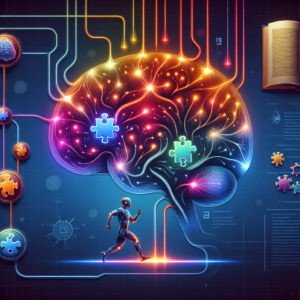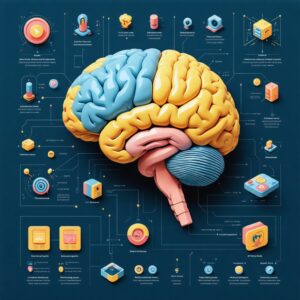
Introduction to Mindfulness & Meditation
Mindfulness and meditation are practices that help individuals cultivate a heightened awareness of the present moment and develop a deeper understanding of their thoughts and feelings. Mindfulness involves paying attention to the here and now without judgment, fostering a sense of acceptance and presence. Meditation is often a formal practice that may involve focusing on a particular object, mantra, or breathing pattern, facilitating deeper introspection and relaxation.
Benefits for Mental Clarity & Focus
Engaging in mindfulness and meditation offers numerous benefits for mental clarity and focus:
1. Enhanced Attention: Regular practice improves the ability to concentrate on tasks, reducing distractions and increasing productivity.
2. Improved Memory: Mindfulness practices have been linked to better working memory, aiding in information retention and recall.
3. Greater Cognitive Flexibility: Practitioners often find it easier to switch between tasks and adapt to changing situations, fostering creativity and problem-solving skills.
Enhancing Emotional Well-being
Mindfulness and meditation can significantly enhance emotional well-being:
1. Reduction in Anxiety and Stress: By focusing on the present, individuals can reduce rumination and stress response, leading to greater peace of mind.
2. Improved Emotional Regulation: These practices help in recognizing and managing emotions, allowing for healthier responses rather than reactive ones.
3. Increased Resilience: Regular meditation cultivates a sense of calm and stability, helping individuals navigate life’s challenges with greater ease.
Scientific Insights on Brain Potential
Research on mindfulness and meditation has revealed fascinating insights into their impact on the brain:
1. Neuroplasticity: Regular practice encourages neuroplasticity, the brain’s ability to form new neural connections, enhancing learning and memory.
2. Structural Changes: Studies have shown that mindfulness can lead to increased gray matter density in areas of the brain associated with emotional regulation and perspective taking.
3. Decreased Amygdala Activity: Practitioners often exhibit reduced activity in the amygdala (responsible for the fight-or-flight response), leading to lower levels of stress and anxiety.
Practical Tips for Daily Practice
Incorporating mindfulness and meditation into your daily routine can be straightforward. Here are some practical tips:
1. Set a Timer: Start with 5-10 minutes of meditation daily and gradually increase the duration.
2. Find a Quiet Space: Choose a calm environment with minimal distractions to enhance the experience.
3. Use Guided Meditations: Utilize apps or online resources to find guided sessions that can help you get started.
4. Practice Mindfulness in Daily Activities: Incorporate mindfulness into daily routines—such as mindful eating, walking, or even brushing your teeth—by paying attention to the sensations and experiences involved.
5. Reflect on Your Practice: Keep a journal to note the thoughts and feelings that arise during meditation, which can help track progress and deepen insights.
Overcoming Common Challenges
Many individuals encounter challenges when practicing mindfulness and meditation. Here are some common issues and strategies to overcome them:
1. Restlessness: If you find it hard to sit still, start with short, active meditations (e.g., walking meditation) and gradually transition to seated practices.
2. Racing Thoughts: Acknowledge your thoughts without judgment and gently bring your focus back to your breath or chosen anchor.
3. Time Constraints: Integrate mindfulness into everyday activities rather than finding extra time; even a few minutes can be beneficial.
4. Self-Criticism: Approach your practice with kindness; remember that meditation is about progress, not perfection.
By understanding and applying these principles of mindfulness and meditation, you can enhance your mental clarity, emotional well-being, and overall quality of life. Consistency is key, so find a rhythm that works for you and embrace the journey of mindfulness.


